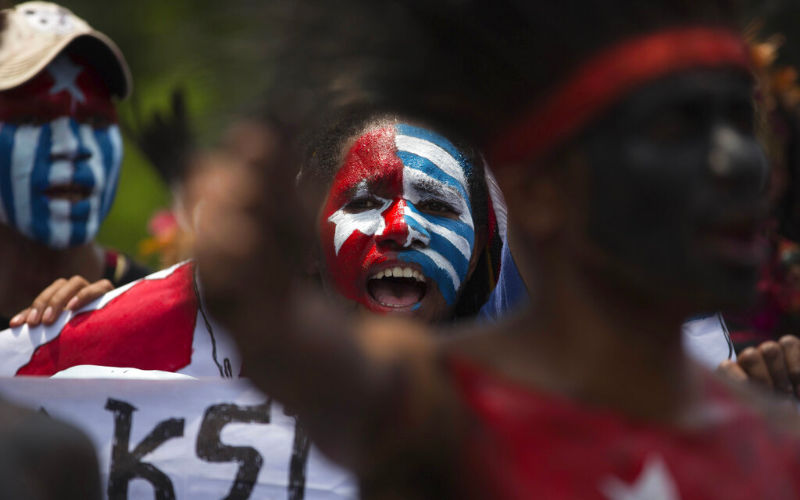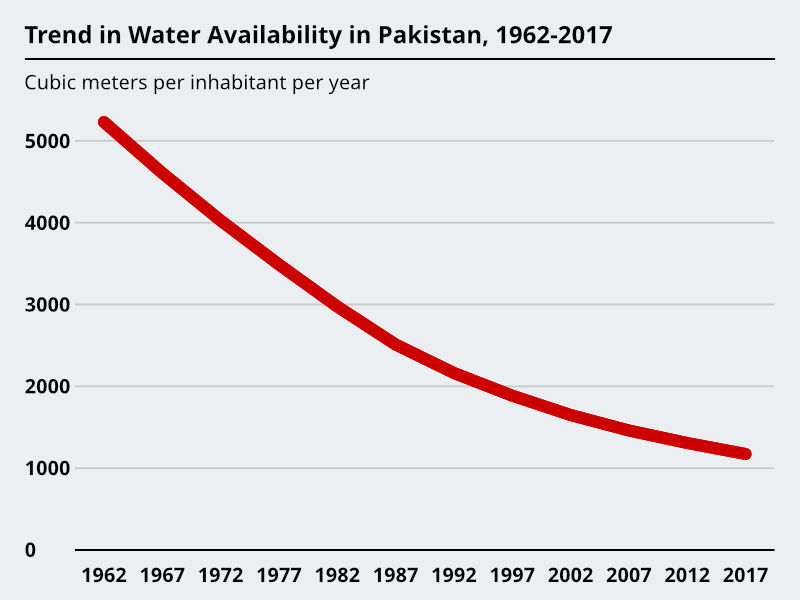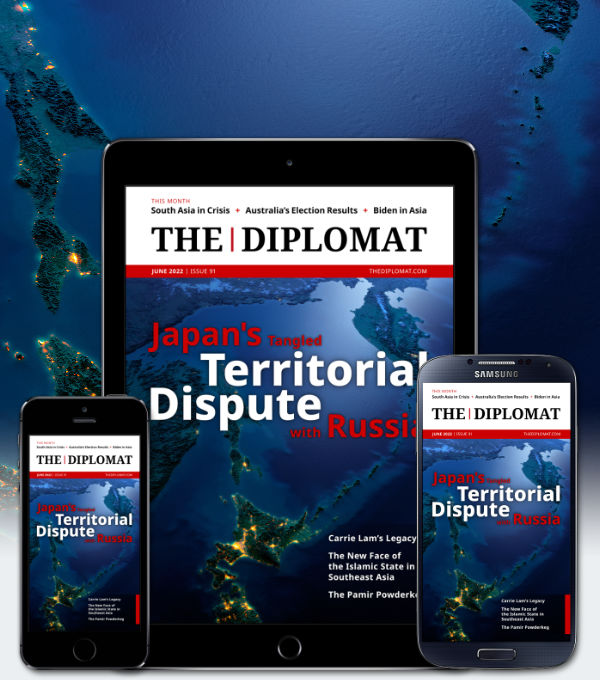| Welcome to the latest issue of Diplomat Brief. This week our top story explores the latest developments in Indonesia’s Papua region, long a source of unrest. We also have an interview with Maryam Baryalay of the Organization for Social Research and Analysis, the author of a recent survey on Afghans’ social and political views. |
| Story of the week |  | Politics Indonesia’s New Plans for Papua Can’t Hide Its Decades of FailuresWhat Happened: In April 2022, Indonesia’s parliament approved a plan to create three new provinces in Papua, the easternmost region of the archipelago. The move came amid an escalation of violence between fighters of the pro-independence West Papua National Liberation Army (TPNPB) and the Indonesian security forces. In the plan to subdivide Indonesia’s two most sparsely populated provinces, many West Papuans sense a kind of “end game” strategy by Indonesia’s government that is expected to worsen the long-running conflict in Papua. Our Focus: The West Papuan push for independence has been around since the 1960s, turning into an armed separatist movement after Papua joined Indonesia. In the 60 years since, Indonesia’s government has continued to turn a blind eye to complaints about human rights violations and an oppressive security environment, instead insisting that pursuing economic development is a panacea to Papua’s troubles. The plan to create new provinces falls squarely into this context: The government says it is a way to boost economic growth, while West Papuans fear an influx of outsiders that will further undermine their ethnic identity. The plan “will create an environment for more land grabbing,” Emanuel Gobay, director of the Papua Legal Aid Institute, told The Diplomat. “Secondly, marginalization of Papuans on their own land would only increase,” he added, predicting a rise in human rights violations. What Comes Next: Thousands of Papuans joined in a protest against the new provinces on May 10, which was put down by security forces. Esther Haluk, one of those arrested during the protest, predicts dire consequences should the redistricting move ahead: “New provinces will pave the way for more new military bases, new facilities for security apparatus. More military, more opposition, more human rights violations. This is like reinstating the Suharto era all over again in Papua.” The potential for expanded violence in Papua could spill over to impact Indonesia’s neighbors, especially Papua New Guinea, which has previously seen influxes of refugees from the Indonesian side of the border. Read this story |
| Behind the News | INTERVIEW Maryam BaryalayMaryam Baryalay of the Organization for Social Research and Analysis, on the Taliban’s popular support (or lack thereof): “Contrary to common assumption that Taliban enjoy support among the Pashtuns of Afghanistan, a rejection of the Taliban moral police saw a significant 20 percent rise in the Pashtun-majority provinces of southern and eastern Afghanistan from 2020 to 2021.” Read the interview |
| This Week in Asia | Northeast Asia China to Host BRICS SummitOn June 23, China is convening an online summit of the BRICS: Brazil, Russia, India, China, and South Africa. It will be Russian President Vladimir Putin’s first appearance at a multilateral summit since he sent Russian troops into Ukraine – a fact China is highlighting in its pre-summit coverage as proof that its close partner is not, in fact, as isolated as the West would like to think. Meanwhile, the summit is also interesting for the participation by India’s prime minister, despite lingering tensions along the Sino-Indian border. Finding common ground will be a difficult task given the issues at play within the BRICS themselves. Find out more | South Asia BJP Comments Spark Anti-India Wave in BangladeshRecent derogatory comments about the Prophet Muhammad from top BJP spokespeople sparked anger from Muslim countries around the world. Bangladesh was a rare exception in one sense: Its government, widely seen as friendly to India, has refrained from commenting. However, Bangladesh’s public has not followed suit. Mass protests and rallies in Dhaka urged India’s BJP to take stronger action against the spokespeople – and demanded that the Bangladeshi government speak out. Find out more | Southeast Asia Indonesian President to Visit Russia, UkraineIn the coming week, Indonesia’s President Joko Widodo will reportedly embark on a diplomatic tour that will include stops in Russia and Ukraine. According to local media reports, after attending the G-7 Summit in Germany on June 26-28, the Indonesian leader will pay a visit to Russia, where he will urge President Vladimir Putin to facilitate the export of wheat from Ukraine. Jokowi’s trip is aimed at alleviating a looming global food crisis – and perhaps also at reducing Western pressure over his government’s decision to invite Putin to this year’s G-20 Summit in Bali . Find out more | Central Asia Violence Against Women in Central Asia in the SpotlightThe COVID-19 pandemic worsened domestic violence across the world, and Central Asia was no exception. Social norms in the region still posit domestic violence as a private, “family matter.” A recent video shared on social media showing an Uzbek groom hitting his bride after she bested him in a silly wedding game thus surprised few Uzbeks, but sparked outrage globally . There is, meaningfully, a growing discussion of domestic abuse in Uzbekistan. Find out more |
| Visualizing APAC |  | Concern over short-term crises has consistently obscured Pakistan’s greatest challenge: a worsening water shortage. See the full picture |
| Word of the Week | Society 摆烂Bǎilàn, Mandarin for “let it rot,” a popular slang phrase among young Chinese who want to give up on striving for success against seemingly impossible odds. Find out more |
|  |




